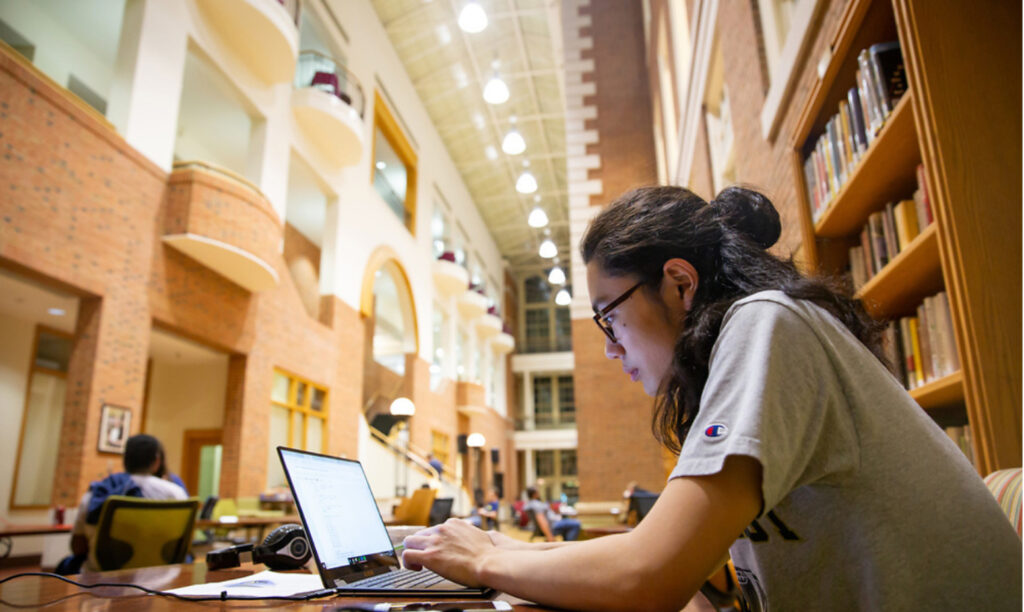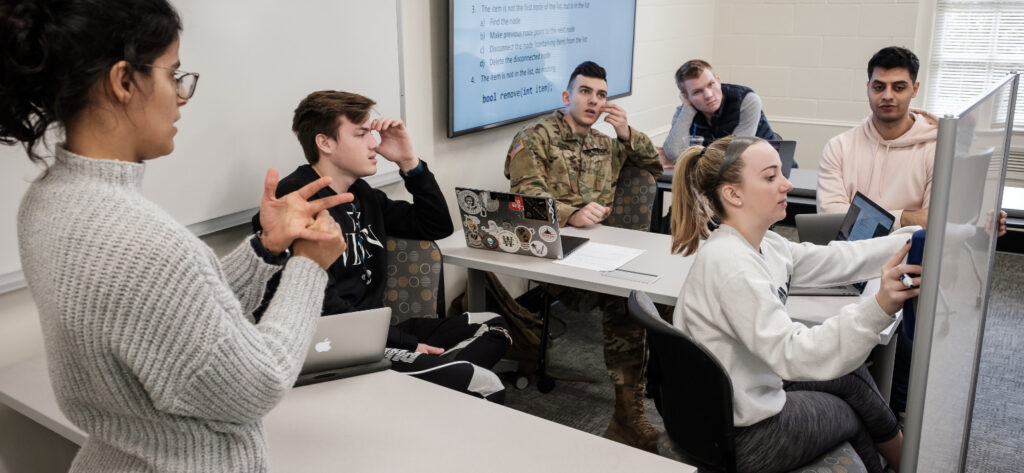Student Experience & Administrative Effectiveness
I.
Student Experience &
Administrative Effectiveness

Key Initiatives
Modernizing & Connecting Systems
Building Blocks
Listening to our campus has been key in allowing us to modernize, centralize, and connect our systems in ways that improve functionality and usability. The completion of several recent projects, including implementing Workday (for Budget, Finance, Human Resources, and Payroll), the New Registration Portal, the new Financial Aid Portal, and upgrading DegreeWorks are just some of the building blocks we are using to create an integrated network of tools that allow our campus to complete tasks in the most efficient and user-friendly way.
IS achieved an important milestone in its Cloud First Strategy, when we transitioned the legacy Student Information System infrastructure to AWS. Now with over 80% of our server infrastructure hosted in the cloud and data center consolidations in process, we continue to look for the most effective balance between cloud-hosted, cloud-native, and software as a service offerings for all of our services.

A new Student Information System will connect, integrate, and modernize the current fragmented student systems into one easy-to-use system. Paper and PDF processes will become digital, workflows will become streamlined, and student administrative functions, including degree planning, registration, scheduling, and personal information updates, will be accessible in one location on multiple devices. Implementing a fully connected and modern student information system will bring transparency into processes and create one system of record. Process optimization from functional areas is currently underway in preparation for a successful implementation.
Seeking to connect more of our campus services, a new launchpad to replace the Wake Forest Information Network (WIN), will bring an improved, mobile-friendly user experience. The new launchpad will showcase a modern interface while providing an agile environment for easily adding new services and posting announcements, creating a central resource for promotion of campus initiatives.
Maximizing Impact of Technology Investments
Building Blocks
The addition of LinkedIn Learning provided an extensive set of courses to support the training that is needed for the ever-changing technology environment. With the recent increase in flexible work options, the implementation of Zoom and Google Meet ensured our campus could continue to effectively collaborate as needed to meet and complete their work. In line with our cloud-first strategy, these software solutions provided scalability and redundancy to enhance productivity. Staff and students can now spend less time on administrative processes and more time strategically thinking, working, and learning.

Video conferencing and hybrid meeting solutions will be a continuing need in the new post-pandemic world. Campus-supported video conferencing platforms will be revisited to assure that campus preferences are being provided along with robust training and support. In conjunction with Flexible Work @ Wake, more comprehensive guides and agnostic technology will be available in classrooms and meeting spaces.
As new technologies and processes are introduced, it is important that our campus is able to easily learn how to use and incorporate these in their day-to-day life. Continuing to build off of our initial Workday implementation, Workday Learning will provide a platform for staff to complete required training based on job profile or involvement in a business process. LinkedIn Learning integrates with Workday Learning allowing campus users to enhance their professional development through a user-friendly platform. Expanding utilization of these robust training tools is key to ensuring our staff have the tools and training to be successful.
Keeping our eye on the changing landscape for emerging technologies, like Artificial Intelligence and Blockchain in higher education, will be critical as we continue to evolve. Listening, learning, and staying connected with peer institutions and consortium partners, like Educause, will ensure we stay informed about new technology related to digital certificates, degrees, workflow, and processes so we can provide the best experiences for our campus community.

